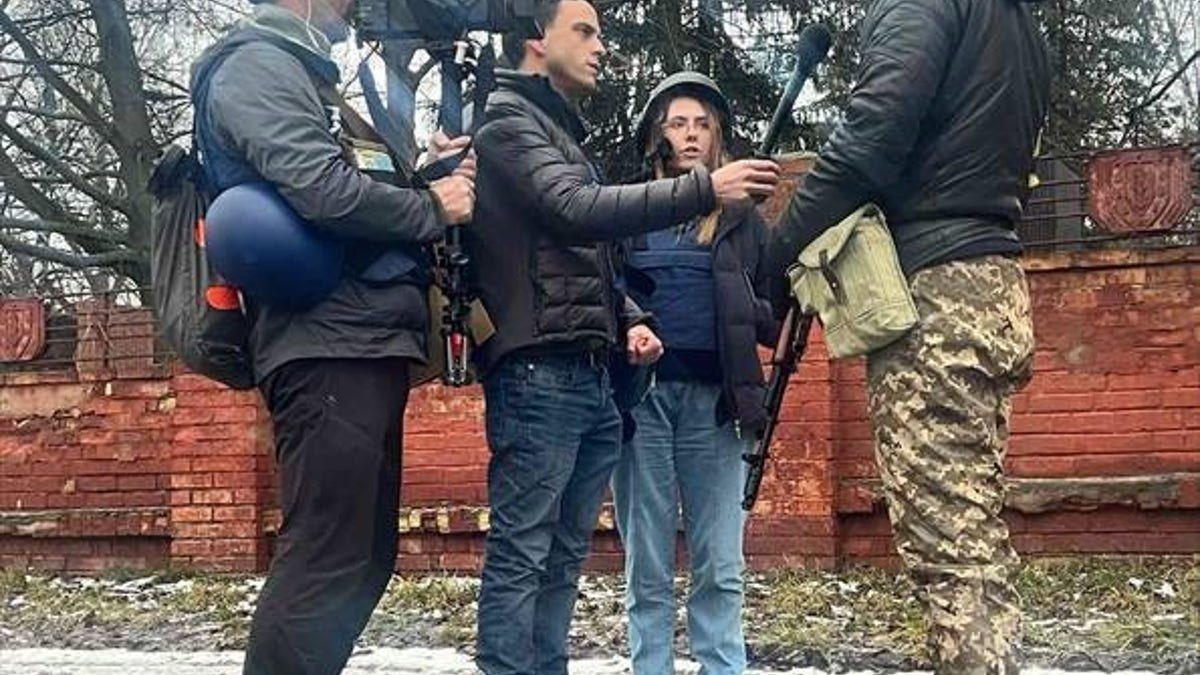Fox News' Trey Yingst details Putin's assault on Ukraine as war continues
The Fox News foreign correspondent joined 'America's Newsroom' to recount his firsthand view of the Ukrainian resistance.
Fox News foreign correspondent Trey Yingst reflected on his time reporting from the ground in Ukraine during the ongoing invasion from Russia.
After spending five weeks in the war-torn nation, Yingst returned to the U.S. and appeared on the "Fox Across America" radio show, where he described his job as being "the calm amid the storm."
"There's a lot of chaos around us depending on the war zone. Sometimes it's rocket fire, sometimes it's a ballistic missile, sometimes it's small arms fire," Yingst told Fox News' Jimmy Failla. "And you got to breathe, you've got to relax, understand that if you're panicking, or you're running around, you can't get the story out. And you also have to remember that people are relying on you to give them a clear picture of what's happening on the ground. They understand there's chaos, they understand that Russia has invaded a sovereign country, so how do we distill this down in a way that people can grasp but then ultimately care about?"
TREY YINGST REFLECTS ON UKRAINE WAR ZONE REPORTING: YOU WATCH LIVES ‘COMPLETELY FALL APART’
"Because I don't think I'd be doing my job correctly if I simply showed people what was happening and didn't think about the impact that these events could have on their lives down the road but also could have on the lives of the people that we are talking to. You have to make people care about people," Yingst said.

Fox News foreign correspondent Trey Yingst conducts an interview on the ground in Ukraine alongside Fox News cameraman Pierre Zakrzewski and Ukrainian journalist Oleksandra "Sasha" Kuvshynova, who were both later killed in an attack.
Yingst shared that his reporting from war zones has given him "incredible perspective," specifically in Ukraine where he met "thousands of people who are fleeing their homes" among the millions displaced during the Russian invasion.
"I’ve covered a lot of war zones and this one feels to me, and it could be in part because we’re in the middle of this war right now, this one feels different in the way that there is still room for this humanity to shine through," Yingst said. "But it is so widespread and so serious for the entire population of Ukraine that it’s limited in how much people are lighthearted because they are literally experiencing a nightmare. It’s unfolding all around them. It’s the sirens. When there are air raids, it’s the explosions in the distance. It’s watching their children or trying to shield their children from seeing bodies in the streets. It’s these really heavy, heavy things."
CLICK HERE TO GET THE FOX NEWS APP
"But amid that, there are these moments of humanity, and sometimes it’s just helping an old lady across a bridge that’s been bombed out, and she’s escaping her home. Sometimes, as we saw in the metro system of Kyiv, someone sharing a piece of bread with another person who is sheltering, trying to get away from the bombing. And so you have all of these moments together, and I think it’s important to highlight them in our coverage because it’s really easy amid the chaos to just focus on the bombs and the bullets and the loud bangs that happened behind us. But we have to, as journalists, dig into that and figure out, well, who’s affected here and how do we make people care about their story," Yingst continued.
Trey Yingst's interview can be listened to below:

